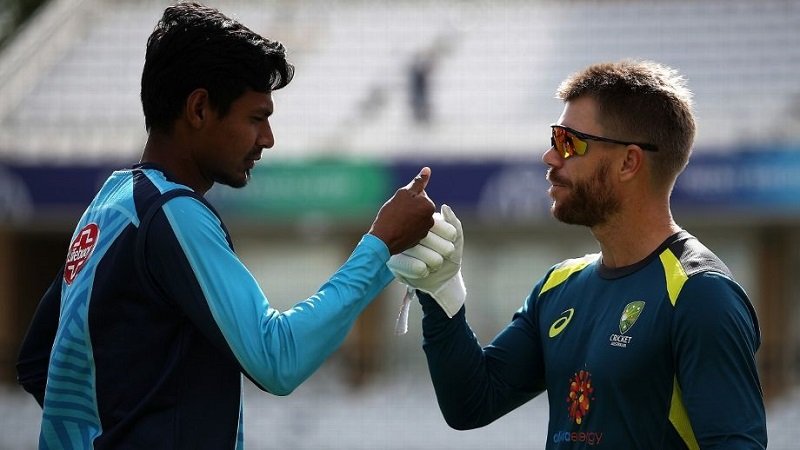The fate of the T20 World Cup out of the way, the ICC’s attention now turns to the World Test Championship (WTC) and in particular, the six Test series postponed because of the Covid-19 pandemic. Progress will not be quick, cautioned the ICC, but for now, matters are proceeding as planned.
The very first WTC was due to be completed by the end of March 2021, each of the nine sides having played six series home and away over a two-year period. The top two sides would then play a final, planned for next summer in the UK. But that schedule has been thrown into disarray because of the impact of the pandemic, and only now are members working out ways with the ICC to reschedule their commitments.
Priority at the moment is on the six series already postponed: Sri Lanka vs England, one Test between Pakistan and Bangladesh, Bangladesh vs Australia, West Indies vs South Africa, Sri Lanka vs Bangladesh and Bangladesh vs New Zealand. “We’re in discussions with the members now with rescheduling of the series that have been postponed to date,” Geoff Allardice, the ICC’s general manager cricket operations, said.
“With the English summer looking like getting both the Test series through, the next ones I know there’s been some talk in the media about West Indies v South Africa are looking to find a suitable time. But outside that series, the next scheduled ones are in late November in New Zealand. So, the focus will come back on the six postponed series and when they might be able to be replayed.
“With some of them, discussions are underway but we’re in the process of getting updates from all member countries as to what they’re looking at. At the moment, everything is proceeding as planned. The series on in England right now are part of the WTC and all of the series that have been identified will be part of the Championships. It’s about getting a feel for whether they can all be completed within the competition window ending in March next year.”
But given the fluid nature of the impacts of the pandemic – with some countries still to reach a peak and others experiencing, or on the verge of, an expected second wave – decisions won’t be taken quickly. Unlike with the T20 World Cup, which was eventually postponed earlier this month, there isn’t a pressing need for a cut-off date by which decisions need to be taken.
“In the last few months, we’ve learned that things change quite quickly,” Allardice said. “One week you think that you’re not going to play for a while and then things begin to open up at a government level and then all of a sudden, things look possible.
“A lot of the series we are talking about, if we are saying November-December, January-February, they are six to eight months away and it’s still hard to predict where things will be in some countries that far out. We haven’t got a firm drop-dead date in mind. We are going to get a feel in the next month or two from member countries about when they’ll be able to resume and what their upcoming seasons look like, including the matches and series they need to reschedule that have been postponed.”
The next cycle of international cricket could also see efforts made to include an international T20 league in the calendar. The idea was discussed during the planning stages for this cycle but the constraints of the existing FTP meant it went no further.
“It was something that was discussed at length and continues to be talked about in terms of how do you achieve it practically,” Allardice said. “What is the right number of teams, the format of the competition? Sometimes you couple ODIs series with Tests series, so how do you do something different without making the league the same number of teams against the same opponents but in T20Is as well?
“Ideally you’d like to incorporate more teams in a Twenty20 structure. Given the constraints of the FTP we were looking at a few years ago, it was a bridge too far then but that doesn’t mean it won’t be on the things we’re trying to achieve in the next calendar.” ESPNcricinfo, Bristol

